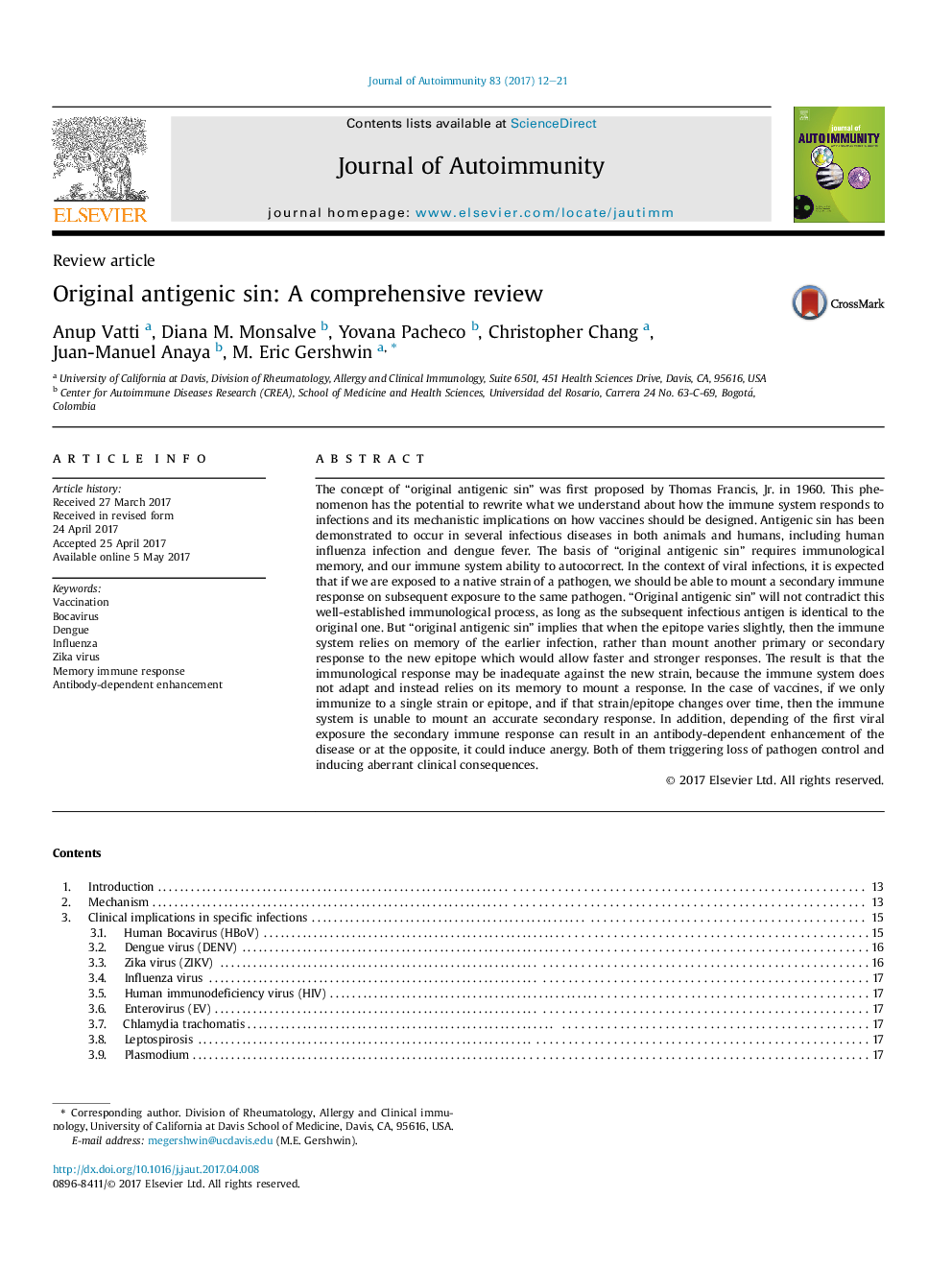| کد مقاله | کد نشریه | سال انتشار | مقاله انگلیسی | نسخه تمام متن |
|---|---|---|---|---|
| 5667839 | 1592266 | 2017 | 10 صفحه PDF | دانلود رایگان |

- Original antigenic sin explains the failure of the immune system to generate an immune response against related antigens.
- In the original antigenic sin a prior exposure to an antigen leads to an ineffective to no response to a related antigen.
- The pathophysiologic mechanism of “original antigenic sin” includes the innate and adaptive immune systems.
- Further studies of original antigenic sin implications aimed to improve versions of already available vaccines are warranted.
The concept of “original antigenic sin” was first proposed by Thomas Francis, Jr. in 1960. This phenomenon has the potential to rewrite what we understand about how the immune system responds to infections and its mechanistic implications on how vaccines should be designed. Antigenic sin has been demonstrated to occur in several infectious diseases in both animals and humans, including human influenza infection and dengue fever. The basis of “original antigenic sin” requires immunological memory, and our immune system ability to autocorrect. In the context of viral infections, it is expected that if we are exposed to a native strain of a pathogen, we should be able to mount a secondary immune response on subsequent exposure to the same pathogen. “Original antigenic sin” will not contradict this well-established immunological process, as long as the subsequent infectious antigen is identical to the original one. But “original antigenic sin” implies that when the epitope varies slightly, then the immune system relies on memory of the earlier infection, rather than mount another primary or secondary response to the new epitope which would allow faster and stronger responses. The result is that the immunological response may be inadequate against the new strain, because the immune system does not adapt and instead relies on its memory to mount a response. In the case of vaccines, if we only immunize to a single strain or epitope, and if that strain/epitope changes over time, then the immune system is unable to mount an accurate secondary response. In addition, depending of the first viral exposure the secondary immune response can result in an antibody-dependent enhancement of the disease or at the opposite, it could induce anergy. Both of them triggering loss of pathogen control and inducing aberrant clinical consequences.
Journal: Journal of Autoimmunity - Volume 83, September 2017, Pages 12-21